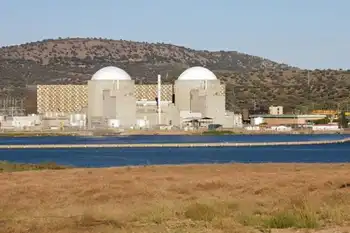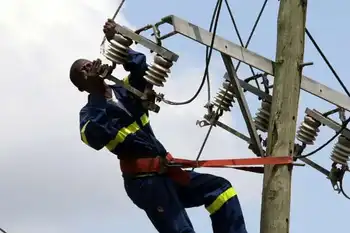Owners bristle as Progress chops trees
By Reuters
Arc Flash Training CSA Z462 - Electrical Safety Essentials
Our customized live online or in‑person group training can be delivered to your staff at your location.

- Live Online
- 6 hours Instructor-led
- Group Training Available
Magnuson's trees are among the 50,000 that the power company plans to cut down in the path of transmission lines across North and South Carolina in the next three years.
Progress officials say the $30 million plan is the only way they can satisfy a federal mandate that sets high fines for power outages caused when trees and other vegetation damage transmission lines.
In Raleigh, the City of Oaks, where the acorn is the municipal symbol, the results are frustration and anger as the clear-cutting opens holes in once-private backyards and leafy streets. "I'm just sitting here myself with the fingers crossed that they are going to go away and not come back," Magnuson said.
Raleigh officials are checking into whether they can curb the cutting. They have asked Progress Energy to give them maps of the transmission lines' path and the utility's tree maintenance plans. "I'm waiting to see what they show me," associate city attorney Dan McLawhorn said.
City officials are particularly concerned about trees that city codes require - in shopping center parking lots, for instance. Property owners could face city fines if Progress Energy chops trees that are required by city code. At least one city has successfully negotiated with a power company to save some trees.
This fall, Durham officials persuaded Duke Energy, which serves the city, to stop its plans to cut more than 250 trees in several downtown neighborhoods, and to prune them instead.
Less than 30 will be lost, said Kevin Lilley, Durham facilities operation manager.
However, the trees stand near lines that carry less than 200,000 volts and are not covered under new stricter federal mandates. Power companies across the country face federal regulations that require them to take a more active role in managing the area underneath the high-power lines that move electricity from power plants to neighborhoods.
Distribution lines, the lines that normally run along streets connecting individual houses to electricity, are not included in the new rules. For years, Progress Energy had been pruning trees along easements, the land where it can control trees and structures.
But the federal government took a closer look after trees sagging onto transmission lines started a chain reaction that left millions without power in 2003. Congress passed a bill in 2005 that set new rules for power companies and new authority to impose fines of up to $1 million a day per violation of the new regulations. The rules went into effect in June.
Progress Energy's work started a couple of months ago with crews chopping down trees in Raleigh and elsewhere, including Wilmington, Sanford, New Bern and Florence, S.C. The work is 5 percent complete.
The rules do not say the company must cut down trees to comply, only that it must have a plan for maintaining the trees and vegetation along the corridor.
Progress Energy does allow trees that will grow no higher than 12 feet in the easements. Duke Energy, which serves much of Durham, allows 15 feet. McLawhorn said he wants to know why Progress Energy chose a more stringent standard and questions whether utility officials are being overzealous.
Scott Sutton, a Progress Energy spokesman, said those numbers aren't arbitrary but are based on the design of the power company's transmission lines. Sutton said the company's policy is to contact each property owner a few weeks before the trees are slated for chopping. "This is an unpleasant part of our job," Sutton said.
"But at the same time, the law is the law, and we've got to balance having minimal impact with the need of meeting federal requirements."
Property owners say they are getting little or no official warning about when their trees are to be chopped. Andrew Techet, owner of the Ridgewood shopping center off Wade Avenue, said he got about a week's notice before crews began cutting down trees at the center in November.
"We talked to the forester and we talked with the powers that be," Techet said. "We said, 'Is there any other way to address this. Can we phase it in?' There was no other alternative but to cut them down, they said." In North Raleigh's Winchester neighborhood, Scott Stewart said a crew came through about six weeks ago.
That's when he found out about the plans. He could lose as many as 10 cypress trees.
"It's frustrating," Stewart said. "It angers me that there is no regard for me, for my family. I've got no notice as to when they are going to come. They are saying, 'We don't have the resources to trim trees,' yet they have the resources to cut them down. They are a gigantic corporation, and I don't believe them for a second."
Magnuson said crews appeared in his Springdale Estates neighborhood during the week of December 3. A worker told him they were clearing a 100-foot swath, but Magnuson noted that there is only a 70-foot easement, at least by his house.
The foreman said he would contact officials to verify the easement width. Magnuson hasn't heard back. But he has watched as his neighbors' trees have been cut.
"They could be more sensitive when they are going through residential neighborhoods," said Magnuson, a retired landscape architect. "They don't need to do the brutalizing, the extent of clearing that they are doing."











